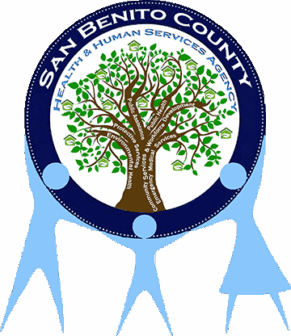Medical Therapy Unit
761 South St., Hollister, CA 95023
(831)637-1989
What is the Medical Therapy Unit (MTU)?
The MTU is the local Medical Therapy Unit where your child can receive medical, physical and/or occupational therapy for conditions such as cerebral palsy, spina bifida and other neurological, neuromuscular, and orthopedic conditions.
Medical Therapy Program
The Medical Therapy Program (MTP) is a special program within California Children’s Services that provides physical therapy (PT), occupational therapy (OT) and medical therapy conference (MTC) services for children who have handicapping conditions, generally due to neurological or musculoskeletal disorders.
Find Out If I Qualify
Just like the general California Children’s Services (CCS) program, anyone, such as a parent, teacher, school nurse, or physician can refer a child to the MTP.
The child’s medical records are reviewed to determine if the child qualifies for the MTP. Once it has been determined that the child is medically eligible for the MTP, the child is then referred to the local Medical Therapy Unit for a therapy evaluation.
Examples of qualifying conditions for CCS and the MTP include:
- Cerebral palsy
- Spina bifida
- Muscular dystrophy
- Rheumatoid arthritis
- Spinal cord injuries
- Arthrogryposis
- Osteogenesis imperfecta
- Head injuries
The State CCS Office has established more detailed criteria.
Eligibility is generally accepted if a child meets one of the following conditions:
- The child has been diagnosed with cerebral palsy.
- The child has been diagnosed with muscular dystrophy, polio, myasthenia gravis or a similar condition, that produces weakness or atrophy.
- The child has been diagnosed with a chronic musculoskeletal or connective tissue condition such as osteogenesis imperfecta, arthrogryposis or juvenile rheumatoid arthritis.
- The child has limb, muscle, connective tissue or joint abnormalities or contractures resulting in disability or functional impairment. Examples include amputation of a limb or joint contractures due to previous burn injury.
- The child has a neurological condition that manifests the same findings as cerebral palsy, such as ataxia-telangiectasia.
- A child under three years of age who has physical findings suggestive of cerebral palsy but not yet conclusive and who needs therapeutic services.
There is no financial eligibility requirement for MTP services. There is a financial eligibility requirement for specialized equipment.
Know the Benefits
Physical Therapy (PT) and Occupational Therapy (OT) services are provided at Medical Therapy Units (MTUs). MTUs are outpatient clinics located in designated public schools.
PT is primarily provided to address mobility and ambulation needs. PT is provided by a trained Physical Therapist who has at least a Bachelors degree, graduated from an approved School of Physical Therapy, and has a license to provide Physical Therapy in California.
OT is primarily provided to address self help skills or Activities of Daily Living (ADLs). OT is provided by a trained Occupational Therapist who has at least a Bachelors degree, graduated from an approved School of Occupational Therapy, and has a license to provide Occupational Therapy in California.
The MTC is an interdisciplinary team meeting where the child’s medical case management regarding the MTP eligible condition is determined. This includes PT, OT and recommendations for specialized equipment, such as orthotics/braces, wheelchairs and other assistive devices.
Comprehensive evaluations are completed by MTP staff and findings and recommendations are discussed with the parents. This evaluation includes physical assessment and may include home, classroom and community access assessment.
MTP staff attends Individualized Educational Plan (IEP) meetings, when requested, to make sure school staff understands the child’s therapy needs and are aware of the child’s participation in the MTP.
What are the parents or caregiver’s role in the medical therapy?
The parents’ active participation in their child’s care and treatment is vital, especially when treatment may be needed over a long period of time. Actual changes cannot usually be expected to occur solely as a result of weekly, biweekly or monthly therapy sessions, but rather are fostered by follow-up of a child’s therapy program in the classroom, at home and in the community.
Some areas where parent participation is needed:
- Attending regular therapy appointments with the child and calling to cancel when unable to attend.
- Carrying out a home program.
- Sharing concerns and expectations.
Parents are encouraged to use other agencies and resources to provide services not covered by CCS. As the child grows and their therapy needs change, the method of management will reflect the appropriate changes. There may be changes in the amount of therapy provided, or a change in emphasis from gross motor needs to fine motor, academic and language skills, or a shift of focus from therapy to classroom consultation and home programs with periodic monitoring by the CCS therapy staff.
761 South St, Hollister, CA 95023
(831)-637-1989


